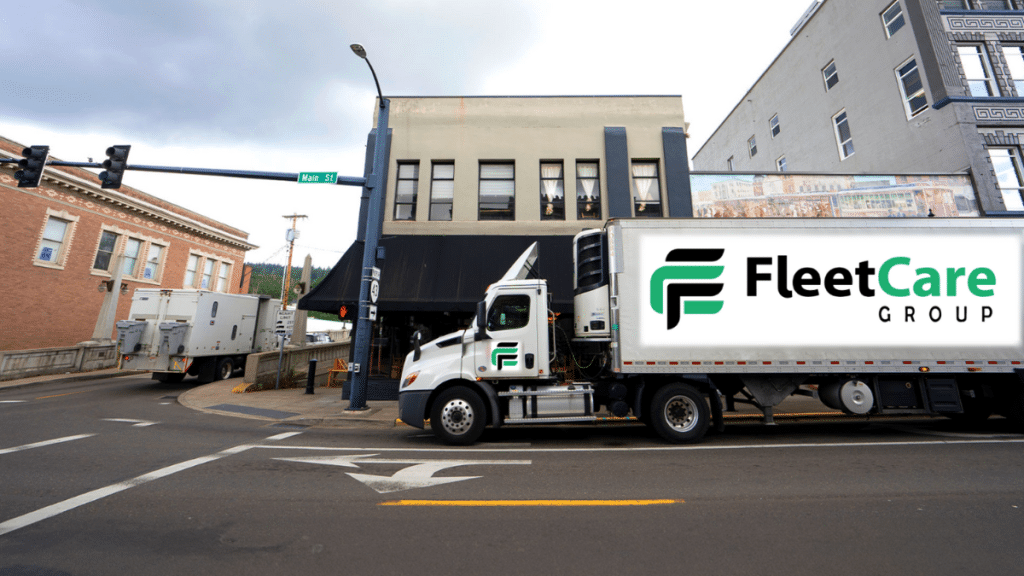The explosive growth of e-commerce has completely transformed the way goods are bought and delivered. From vast warehouses to customers’ front doors, trucking plays a crucial role in powering e-commerce logistics and ensuring seamless last-mile delivery. Leveraging tools like truckers dispatch service has become vital for optimizing operations and meeting rising consumer expectations. Below, we explore the integral connection between trucking and e-commerce, the challenges faced in last-mile delivery, and the solutions that make this process more efficient.
The Importance of Trucking in E-commerce
E-commerce relies heavily on trucking to move goods swiftly and reliably through the supply chain, from warehouses to distribution centers and ultimately to consumers. Here’s how trucking underpins the e-commerce industry:
Transporting Orders from Fulfillment Centers
Once a purchase is made online, the ordered goods are packed at fulfillment centers and loaded onto trucks for delivery. These trucks carry products in bulk to regional distribution hubs or directly to local delivery points, accelerating the shipping process.
Supporting Rapid Delivery Models
E-commerce giants like Amazon and Walmart have set new standards for delivery speed, with same-day and next-day shipping options becoming common. Trucking ensures these rapid commitments are met by transporting inventory quickly between key logistics points, enabling faster order completion.
Flexibility Across Varying Locations
One major advantage of trucking lies in its flexibility. Trucks can reach a wide array of destinations, from metropolitan hubs to suburban zones and rural areas. Unlike other modes of transport such as rail or shipping, trucks can adjust their routes to accommodate dynamic delivery needs.
Challenges in Last-Mile Delivery
Last-mile delivery, the final step in the shipping process when goods reach the customer, is considered one of the toughest aspects of logistics. Below are some of the key challenges faced in last-mile delivery for e-commerce:
Rising Customer Expectations
Consumers now expect fast, on-time delivery paired with real-time tracking. Delays, missed delivery windows, or poor communication can severely impact customer satisfaction, making the last mile a critical touchpoint in the customer experience.
Congested Urban Areas
Delivering in densely populated cities presents logistical headaches, including traffic congestion, limited parking, and narrow streets. These issues can slow down drivers and increase the cost of each delivery.
High Operational Costs
Last-mile delivery is labor-intensive and accounts for a significant portion of total shipping expenses. Costs such as fuel, driver wages, and vehicle maintenance can add up, especially when delivering to multiple dispersed locations.
Environmental Concerns
Fuel consumption from repeated, short-distance trips contributes significantly to greenhouse gas emissions. Sustainable last-mile delivery practices are becoming more important as consumers and governments demand eco-friendly solutions.
How Dispatch Services Solve Last-Mile Delivery Challenges
Dispatch services have emerged as powerful tools in overcoming the challenges of e-commerce and last-mile delivery. By combining technology and data-driven decision-making, dispatch services enable trucking companies to run smoother operations while meeting the demands of e-commerce.
Route Optimization
Dispatch services use advanced algorithms to calculate the most efficient routes for drivers. These systems factor in variables like traffic, weather conditions, and delivery schedules to minimize travel time. Optimized routes save fuel, reduce costs and ensure timely deliveries.
Real-Time Tracking
Consumers value transparency and expect updates on their order status. Dispatch systems enable real-time vehicle tracking, giving customers and logistics managers precise insights into delivery progress. This visibility builds trust and boosts satisfaction.
Fleet Management
Dispatch platforms centralize fleet management by assigning drivers, tracking performance, and scheduling maintenance. By eliminating inefficiencies, these tools improve productivity and reduce costs in last-mile delivery operations.
Adaptability to Changing Conditions
Unexpected delays such as traffic jams and road closures can disrupt delivery schedules. Dispatch services empower trucking companies to make real-time adjustments, reroute vehicles, and notify customers immediately, ensuring smooth delivery experiences.
Sustainability Practices
Many dispatch services now incorporate features to support sustainability, including fuel optimization and electric vehicle (EV) compatibility. These tools contribute to greener operations, aligning with the growing demand for environmentally friendly delivery methods.
Enhancing Customer Satisfaction with Effective Last-Mile Delivery
Success in e-commerce and last-mile delivery hinges on one key factor: customer satisfaction. Here’s how trucking companies can leverage technology and best practices to keep customers happy:
Timely Deliveries
Delivering packages on or ahead of schedule is essential to retain customer loyalty. Using dispatch systems allows companies to minimize delays and consistently honor delivery promises.
Clear Communication
Customers want to stay informed about their orders. Real-time notifications, tracking links, and estimated delivery times provide clarity and convenience for end-users. Dispatch platforms simplify the communication process by automating these updates.
Flexible Delivery Options
Offering flexible delivery time slots or same-day options can set a trucking company apart. Dispatch systems make it possible to allocate resources to support these customer-centric features.
Handling Issues Wisely
When delivery hiccups occur, businesses must act proactively to resolve them. For instance, notifying a customer about a delay and offering alternative solutions (like rescheduled delivery times) can turn a potential complaint into praise for responsive service.
Final Thoughts
Trucking is the backbone of e-commerce logistics, ensuring that goods make their way from warehouses to customers quickly and reliably. Last-mile delivery, while challenging, represents a critical opportunity for trucking companies to stand out by delivering exceptional customer experiences. With continued innovation and a focus on sustainability and customer-centered practices, the future of trucking in e-commerce and last-mile delivery is bright and filled with possibilities.
